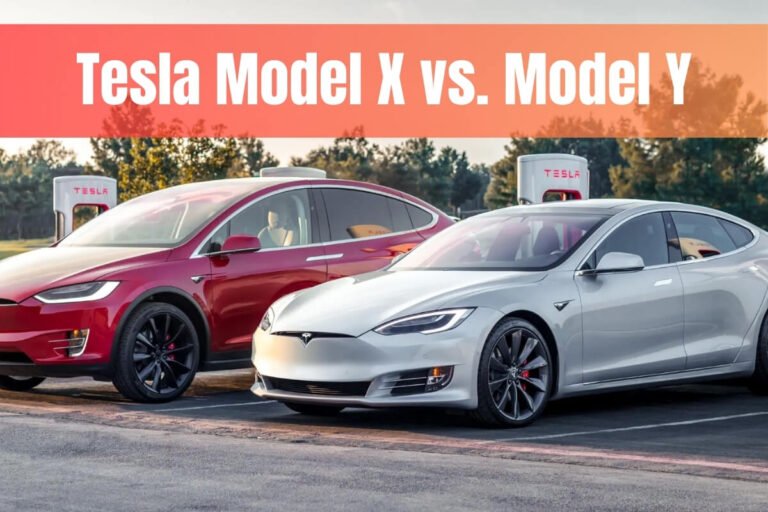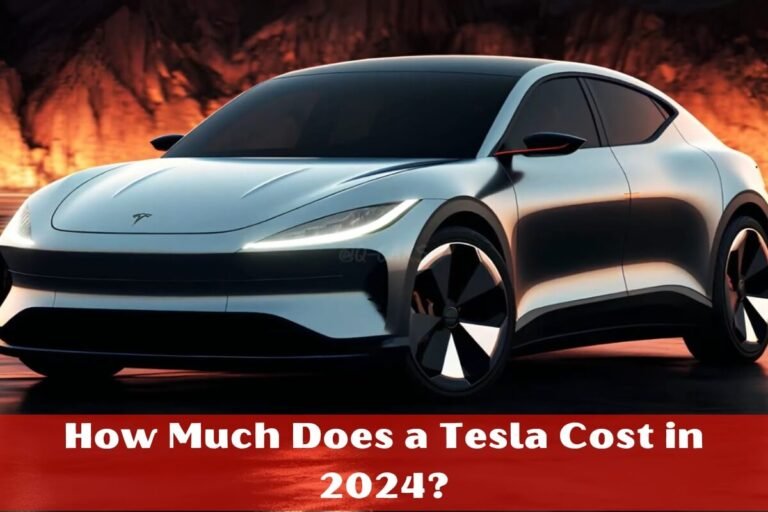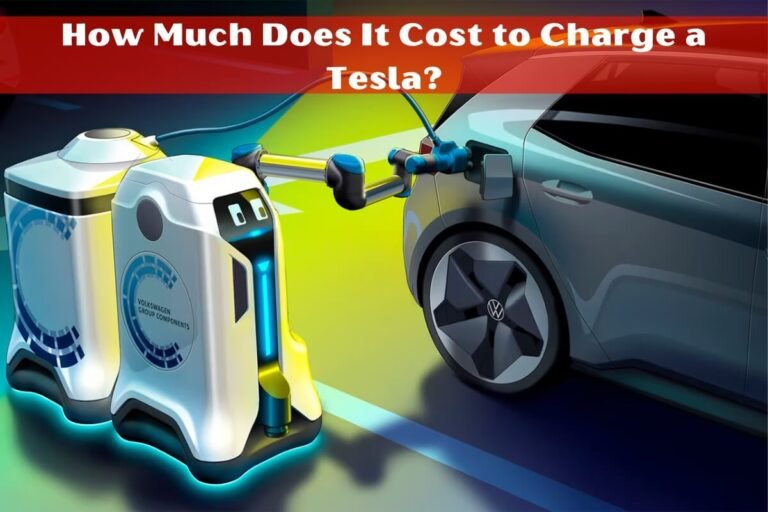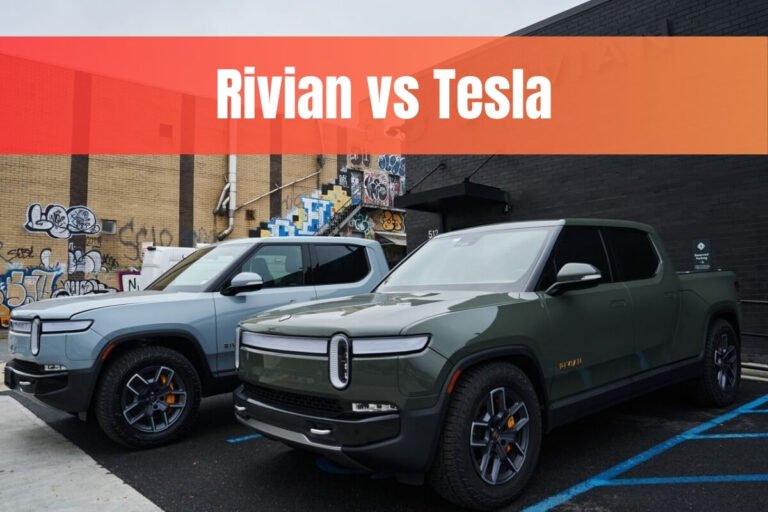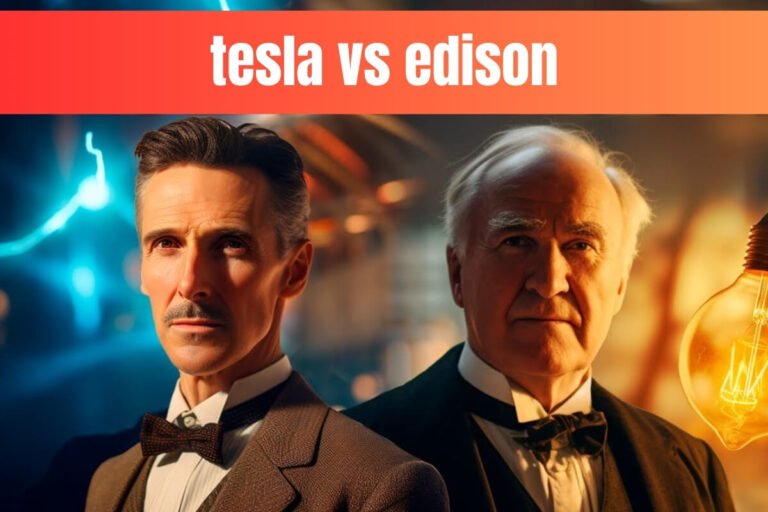How Much is Tesla Worth? Unveiling the EV Giant’s Valuation
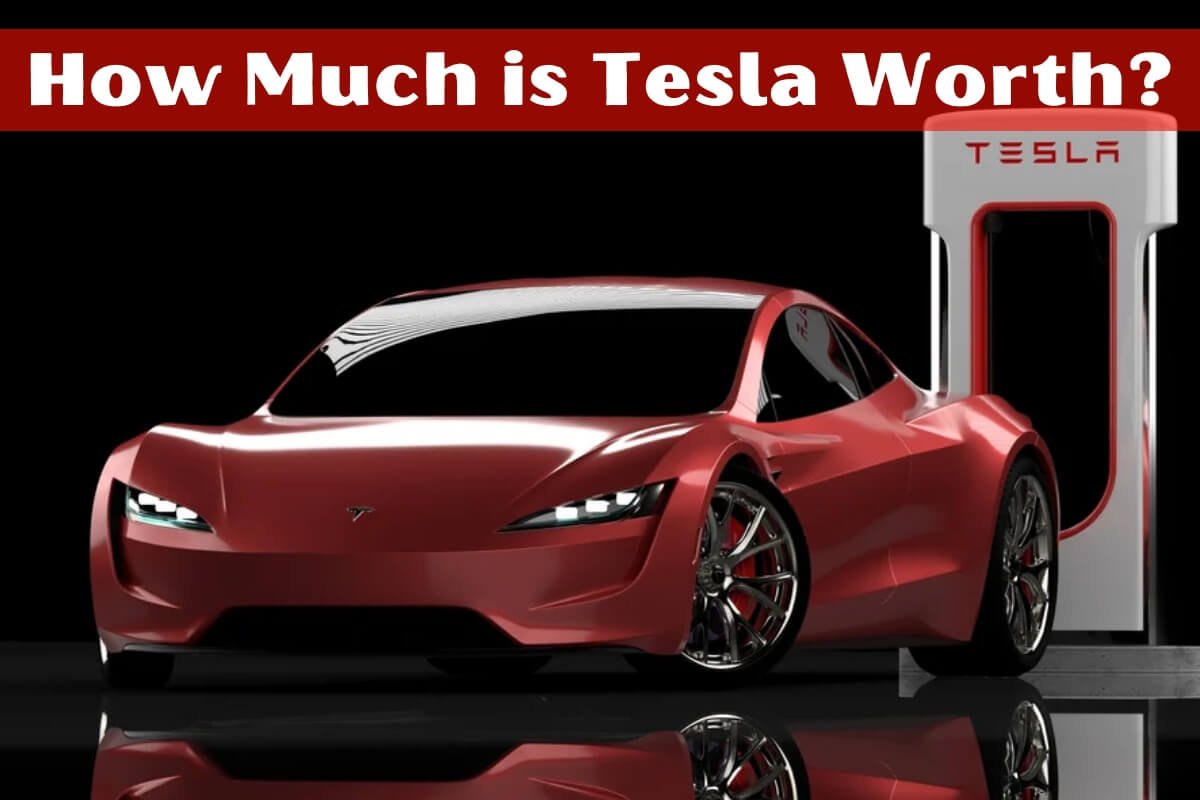
Tesla, the trailblazer of the electric vehicle revolution, has captured the world’s attention with its innovative products and ambitious vision. From humble beginnings as a startup in Silicon Valley, the company has transformed into a global powerhouse, disrupting the traditional automotive industry. As Tesla continues to make headlines with its groundbreaking technologies and bold initiatives, one question remains at the forefront of investors’ minds: How much is Tesla worth?
The short answer is that as of [recent date], Tesla’s market capitalization stands at a staggering [current market cap value], making it one of the most valuable companies in the world. However, understanding the true worth of this electric vehicle giant requires a deeper dive into its financial performance, growth potential, and the factors shaping its valuation.
Today, we are going to explore Tesla’s current market capitalization, delve into its historical market cap trends, analyze the key influences on its valuation, examine its financial results and future projections, and assess whether the company is overvalued or undervalued. We’ll also address frequently asked questions about Tesla’s worth, providing you with a well-rounded understanding of this industry-disrupting company.
Tesla’s Current Market Capitalization
As of [recent date], Tesla boasts an impressive market capitalization of [current market cap value]. This staggering figure places Tesla among the ranks of tech giants like Apple, Microsoft, and Amazon, and far surpasses the market caps of traditional automakers such as General Motors and Ford.
To put Tesla’s market cap into perspective, let’s compare it to some of its competitors:
- Toyota Motor Corporation: [Toyota’s market cap]
- Volkswagen AG: [Volkswagen’s market cap]
- General Motors Company: [GM’s market cap]
- Ford Motor Company: [Ford’s market cap]
Tesla’s market capitalization dwarfs that of these long-established automakers, despite having significantly lower revenue and production volumes. This discrepancy highlights the market’s confidence in Tesla’s future growth potential and its ability to disrupt the automotive industry with its cutting-edge electric vehicle technology.
Historical Market Cap Trends
Tesla’s journey to becoming one of the most valuable companies in the world has been nothing short of remarkable. Let’s take a look at how its market capitalization has evolved over the years:
[Insert a table or chart showing Tesla’s market cap progression from 2010 to 2024]
As the data illustrates, Tesla’s market cap has experienced a meteoric rise, especially in recent years. Key milestones and events that have significantly impacted its valuation include:
- 2010 IPO: Tesla went public at a valuation of [IPO market cap], marking its entry into the public markets.
- Model S Launch (2012): The introduction of Tesla’s premium electric sedan, the Model S, boosted investor confidence and drove up the company’s market cap.
- Gigafactory Announcement (2014): Tesla’s plans to build a massive battery manufacturing facility, known as the Gigafactory, fueled optimism about its future growth prospects.
- Model 3 Unveiling (2016): The reveal of Tesla’s more affordable Model 3 sedan sparked a surge in demand and investor interest, leading to a substantial increase in market capitalization.
- Profitable Quarters (2018-2019): As Tesla achieved its first consecutive profitable quarters, the company’s stock price soared, reflecting its improving financial performance.
- S&P 500 Inclusion (2020): Tesla’s inclusion in the prestigious S&P 500 index further boosted its market cap, signaling its maturity as a company.
These milestones not only highlight Tesla’s ability to innovate and execute but also demonstrate the market’s confidence in the company’s long-term vision and potential for growth.
Factors Influencing Tesla’s Market Valuation
Several key factors have contributed to Tesla’s soaring market valuation and its status as a disruptive force in the automotive industry:
1. Growth Potential in the Electric Vehicle Market
The global transition towards electric vehicles (EVs) is well underway, driven by concerns over environmental sustainability and the need for cleaner transportation solutions. As a pioneer and market leader in the EV space, Tesla is well-positioned to capitalize on this growing demand.
According to industry analysts, the global EV market is expected to grow at a compound annual growth rate (CAGR) of [projected EV market growth rate] between [year range]. Tesla’s early mover advantage, brand recognition, and vertically integrated business model give it a significant competitive edge in this rapidly expanding market.
2. Innovative Technologies and Disruptive Potential
Tesla is more than just an automaker; it’s a technology company at its core. The company’s focus on innovation has resulted in groundbreaking advancements in areas such as battery technology, autonomous driving, and energy storage solutions.
Tesla’s Autopilot system, which enables semi-autonomous driving capabilities, has garnered widespread attention and serves as a stepping stone towards the company’s ultimate goal of achieving full self-driving capabilities. Additionally, Tesla’s energy storage products, like the Powerwall and Megapack, have the potential to revolutionize the way we generate, store, and consume energy.
These innovative technologies not only differentiate Tesla from traditional automakers but also open up new revenue streams and growth opportunities for the company, further fueling its valuation.
3. Elon Musk’s Vision and Reputation
No discussion about Tesla’s market valuation would be complete without mentioning the role played by its visionary CEO, Elon Musk. Musk’s ambitious goals, bold statements, and unwavering commitment to sustainable energy have captivated investors and captured the public’s imagination.
Musk’s reputation as a risk-taking entrepreneur and his track record of delivering on ambitious promises have contributed significantly to the market’s confidence in Tesla’s ability to execute its vision. His leadership and influence over the company’s direction cannot be understated, as investor sentiment often fluctuates in response to his public statements and actions.
Tesla’s Financial Performance and Future Projections
While Tesla’s market capitalization is undoubtedly impressive, it’s crucial to examine the company’s financial performance and future projections to assess its potential for sustained growth and profitability.
Recent Financial Results
[Insert a table or summary of Tesla’s recent financial results, including revenue, profits, cash flow, etc.]
Despite its remarkable market valuation, Tesla’s financial performance has been a mixed bag. While the company has experienced substantial revenue growth, driven by increasing vehicle deliveries and expanding into new markets, it has also faced challenges in maintaining consistent profitability.
Future Projections and Analyst Forecasts
Analysts and industry experts have varying opinions on Tesla’s future growth prospects. Some are bullish, citing the company’s technological prowess, brand appeal, and the growing demand for electric vehicles. Others remain cautious, citing concerns over competition from traditional automakers, regulatory challenges, and supply chain constraints.
According to [reputable source/analyst firm], Tesla’s revenue is projected to grow at a CAGR of [projected revenue growth rate] between [year range]. However, these projections are subject to various risks and uncertainties, including:
- Intensifying competition from established automakers and emerging EV startups
- Potential regulatory changes or government incentive programs impacting the EV market
- Supply chain disruptions or shortages of critical components like semiconductors
- Economic factors, such as inflation or changes in consumer spending patterns
It’s important to note that these projections are based on assumptions and can change rapidly in response to market conditions and unforeseen events.
Is Tesla Overvalued or Undervalued?
The debate surrounding whether Tesla is overvalued or undervalued has been ongoing among investors, analysts, and industry experts. Let’s explore both sides of the argument:
Arguments for Tesla Being Overvalued
Critics argue that Tesla’s current market capitalization is unjustified and not supported by its financial performance or established market share. They cite the following reasons:
- High Valuation Metrics: Tesla’s price-to-earnings (P/E) ratio and price-to-sales (P/S) ratio are significantly higher than those of traditional automakers, suggesting that the company may be overvalued based on traditional valuation metrics.
- Uncertainty Around Future Growth: While Tesla has ambitious plans for future growth, there are concerns about the company’s ability to execute on these plans and maintain its competitive edge in a rapidly evolving market.
- Competition from Established Automakers: As traditional automakers accelerate their electric vehicle programs, they pose a significant threat to Tesla’s market dominance, potentially eroding its first-mover advantage.
Arguments for Tesla Being Undervalued
On the other hand, Tesla bulls argue that the company’s current valuation is justified and may even be undervalued given its disruptive potential and long-term growth prospects. Here are some of the key arguments:
Disruptive Business Model: Tesla’s vertically integrated business model, which includes vehicle production, energy storage solutions, and a direct-to-consumer sales approach, sets it apart from traditional automakers and positions the company as a technology leader rather than just an automaker.
- First-Mover Advantage: Tesla’s early entry into the electric vehicle market has given it a significant head start over competitors, enabling it to build brand loyalty and establish a strong presence in key markets.
- Potential for New Revenue Streams: Beyond electric vehicles, Tesla’s innovations in areas like autonomous driving and energy storage solutions could open up new revenue streams and growth opportunities in the future.
- Long-Term Vision: Investors who believe in Elon Musk’s long-term vision for a sustainable energy future may view Tesla’s current valuation as justified, considering the company’s potential to disrupt multiple industries.
Ultimately, whether Tesla is overvalued or undervalued depends on individual investors’ perspectives, risk tolerance, and belief in the company’s ability to execute its ambitious plans and sustain its competitive advantages.
Frequently Asked Questions about Tesla’s Worth
To provide a comprehensive understanding of Tesla’s worth, let’s address some frequently asked questions:
What is Tesla’s current stock price, and how has it performed recently?
As of [recent date], Tesla’s stock price is [current stock price]. Over the past [time period], the stock has [increased/decreased] by [percentage change], reflecting [potential reasons for stock performance].
How does Tesla’s market cap compare to other electric vehicle manufacturers?
Tesla’s market capitalization of [current market cap] dwarfs that of other electric vehicle manufacturers like [competitor 1: market cap], [competitor 2: market cap], and [competitor 3: market cap]. This significant gap highlights Tesla’s dominant position in the EV market and the market’s confidence in its future growth potential.
What factors could potentially impact Tesla’s future growth and valuation?
Several factors could influence Tesla’s future growth and valuation, including:
- Competition from traditional automakers and emerging EV startups
- Regulatory changes or government incentives impacting the EV market
- Advancements in battery technology and charging infrastructure
- Successful execution of Tesla’s autonomous driving and energy storage initiatives
- Macroeconomic conditions and consumer demand for electric vehicles
Is investing in Tesla a wise decision, considering its high valuation?
Whether investing in Tesla is a wise decision depends on individual investment goals, risk tolerance, and belief in the company’s long-term prospects. While Tesla’s high valuation carries certain risks, some investors may view it as a long-term investment opportunity in a disruptive and innovative company poised for growth in the rapidly evolving EV market.
How does Tesla plan to maintain its competitive edge in the rapidly evolving EV market?
Tesla’s strategy to maintain its competitive edge involves:
- Continuous innovation in battery technology, autonomous driving, and energy storage solutions
- Expansion into new markets and segments (e.g., semi-trucks, energy products)
- Strategic partnerships and acquisitions to bolster its technological capabilities
- Investing in manufacturing capacity and infrastructure to meet growing demand
- Leveraging its brand recognition and customer loyalty to attract new buyers
Final Checkpoint
Tesla’s remarkable market capitalization of [current market cap value] is a testament to the company’s disruptive potential, innovative technologies, and the market’s belief in its long-term vision. While debates about its valuation continue, one thing is clear: Tesla has transformed the automotive industry and paved the way for a sustainable energy future.
As the global transition towards electric vehicles accelerates, Tesla’s position as a market leader and its ability to execute its ambitious plans will be crucial in determining its future growth and profitability. Investors and industry observers alike will be closely watching Tesla’s journey, as the company navigates the challenges and opportunities that lie ahead in this rapidly evolving landscape.
Whether you consider Tesla overvalued or undervalued, one thing is certain: this electric vehicle pioneer has captured the world’s attention and ignited a revolution in sustainable transportation.

